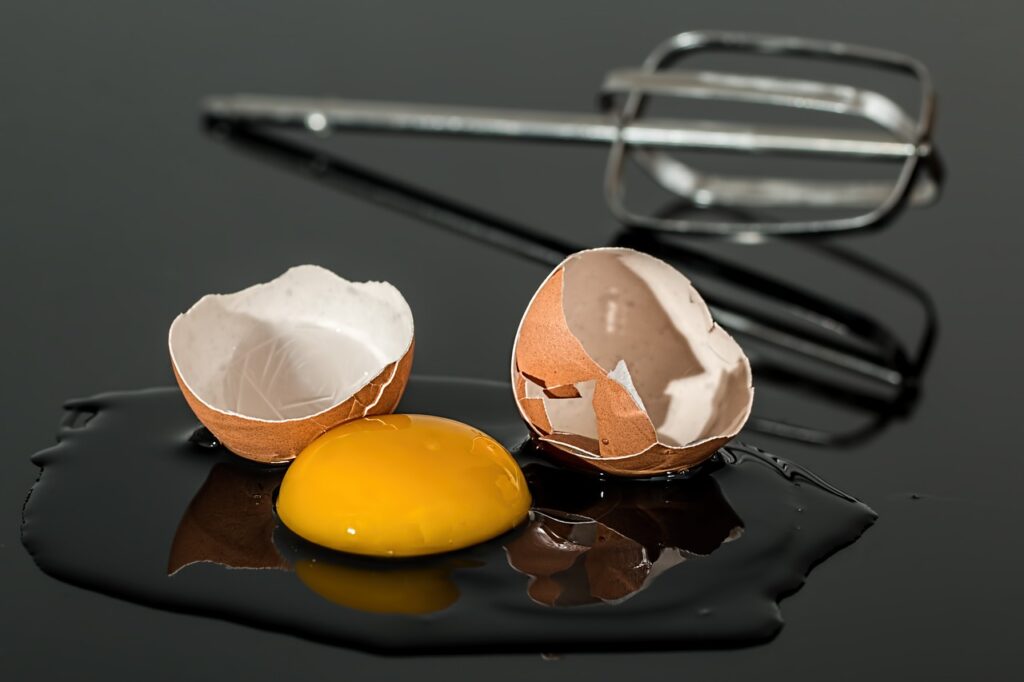Table of Contents
Introduction to Headaches: Types, Causes and Symptoms
Headaches are a common occurrence for many people, and they can range from mild discomfort to debilitating pain. Understanding the different types of headaches, their causes, and symptoms is crucial in managing them effectively.
Tension Headaches:
Tension headaches are one of the most common types of headaches. They often cause a dull ache or pressure around the temples or the back of the head and neck region. Muscle tension and stress are usually the main culprits behind these kinds of headaches.
Migraines:
Migraines are another type of headache that affects about 10% of people worldwide. Migraine attacks usually involve intense throbbing pain on one side or both sides of your head accompanied by nausea/vomiting and sensitivity to light/sound/smells.
Sinus Headaches:
If you have facial pressure around your forehead, cheeks or eyes area due to inflammation in your sinuses which could lead to nasal congestion this kind Of headache occurrs known as Sinus headache
Hormonal Headache :
Hormonal changes especially related estrogen in females create hormonal imbalance resulting into migraine without aura like episodes,increase blood loss during periods may also result in iron deficiency anemia leading towards mixed etiology with other types such as tension
Besides mentioned above there can be some more uncommon variety like thunderclap i.e sudden onset severeheadache,may be associated with bleeding inside brain etc., cluster headache , medication overuse headache etc., Identifying correct nature Would help in targeted management
Headaches can be caused by a variety of factors, such as dehydration, lack of sleep, poor posture or diet. They could also occur due to underlying medical conditions like high blood pressure and brain tumor. Therefore it is important to know your symptoms if unusual and frequent seek expert opinion.
Whatever the cause may be utilizing natural remedies for easing headaches offer safer alternatives compared with regular analgesic consumption which over time might have unwanted side effects
The Benefits of Natural Remedies for Headache Relief
Headaches are a common ailment that many people experience from time to time. While most headaches can be treated with over-the-counter medications or prescription drugs, natural remedies have become popular as a safer and more effective alternative. There are several benefits to using natural remedies for headache relief, including:
No Side Effects: Unlike conventional painkillers, natural remedies do not cause any adverse side effects on the body. They provide relief without any risk of addiction or dependency.
Better Long-Term Health: Natural remedies focus on identifying and treating the root cause of the problem rather than just treating the symptoms. This approach helps in achieving better long-term health outcomes as it strengthens overall health and wellbeing.
Ease of Access: Most natural remedies are readily available at home or nearby stores which means they can be accessed easily without too much effort or expense.
Cost-Effective: Natural remedies usually cost less than prescription medication, making them an affordable option for those looking for cost-effective solutions to treat their headaches.
Apart from these benefits, natural remedies offer a holistic way of healing that focuses on nourishing the entire body instead of just focusing on one particular symptom. Many people find this approach empowering as it puts them in control of their own healing process by relying less on external interventions like medication and focussing more on self-care practices such as good nutrition, exercise, stress management etc.
Top 5 Natural Remedies for Tension Headaches
Tension headaches are a common type of headache that can be caused by stress, anxiety, poor posture or muscle tension. They often feel like a dull ache around the forehead and temples and can cause sensitivity to light and sound.
1) Stretching Exercises:
Stretching your neck, shoulders and back muscles can help relieve built-up tension in your muscles and reduce the intensity of a headache. Try gentle exercises like rotating your head slowly from side to side or rolling your shoulders forwards and backward several times.
2) Aromatherapy:
The soothing scents of essential oils like lavender or peppermint have pain-relieving properties that make them an effective remedy for headaches. Simply add a few drops of oil into a diffuser or combine with carrier oils before massaging onto pressure points i.e., temples, forehead.
3) Cold Compresses:
A cold compress helps constrict blood vessels reducing inflammation on both sides which is effective in reducing symptoms associated with migraines too. Dip washcloth or towel in cold water wringing excess out apply it over area where migraine strikes
4) Magnesium Intake:
Magnesium is an important mineral needed for proper nerve function & contributes towards relaxation also commonly found deficient causing “silent” illnesses inclusive of chronic ones such as migraines & mild depression etc.. Foods high in magnesium include almonds , spinach bananas which should be added into diet consistently along with supplements if case magnesium depletion persists.
5) Maintain Good Posture:
Poor posture increases the chances of experiencing neck strain which is one potential cause of tension headaches. It is important to maintain good posture by sitting and standing up straight while engaging in daily activities, exercising regularly for balancing muscles around neck & shoulders.
Overall natural remedies provide an effective way to alleviate the symptoms of tension headaches without any side-effects and drug dependency. However it is always advisable if headache persists or worsen medical attention should be attained.
How to Use Essential Oils for Migraine Relief
1. Inhalation
One way to use essential oils is through inhalation. You can add a few drops of your preferred oil into hot water or diffuse it using a vaporizer or diffuser.
2. Topical Application
You can also apply the oil topically by diluting it with carrier oil such as coconut or olive oil before massaging onto your temples, neck, and shoulders where you feel the tension caused by migraines.
Note: Always conduct a skin patch test before applying it on larger areas of skin.
3. Peppermint Oil
Peppermint oil has cooling properties that provide immediate relief from migraine pain when applied topically on the forehead and temples but must be diluted properly before application.
4. Lavender Oil
Lavender is known for its calming effects which help prevent migraines caused by anxiety and stress factors in many cases.Topical application of this soothing fragrance helps decrease inflammation around head area effectively alleviating triggers related with Migraine attacks.
5.Rosemary Oil
Rosemary’s anti-inflammatory benefits help manage joint pains while improving circulation; thus it provides headache relief alongside relaxing tired muscles surrounding forehead temporally reducing stress-related headaches considerably different than other popular options like Lavender. 6. Eucalyptus Oil
Eucalyptus oil has a cooling and soothing effect on the head when applied topically, promoting deeper breathing and relaxation by clearing your airways during the attack.
7. Chamomile Oil
Chamomile contains powerful anti-inflammatory properties that relax body muscles, which can alleviate headaches related to tension and stress. It also has a sedative effect that promotes better sleep quality improving overall wellness factors for Migraine preventions.
Note: Essential oils should not be used as a substitution for any medically-prescribed treatment; make sure you discuss incorporating them into your routine with your doctor before using them.
In conclusion, essential oils have several benefits in managing migraines naturally. However individuals may react differently to various oils hence crucial to start from low doses or consult with their healthcare professional on finding ideal options best fitting individual needs safely.
Lifestyle Changes That Can Prevent Recurring Headaches
While medication and natural remedies can help relieve headaches, making certain lifestyle change is also important in preventing them from occurring frequently. Here are some changes you can make:
Dietary Adjustments
Eating a healthy and well-balanced diet can go a long way in reducing the frequency of headaches. Avoiding trigger foods such as processed meats, dairy products, chocolate, caffeine, and alcohol may also help reduce the risk of developing migraines.
Hydration Habits
Drinking enough water throughout the day is crucial to staying hydrated and warding off dehydration-induced headache pain. Aim for at least eight glasses per day or more if you’re physically active.
Adequate Sleep
Lack of sleep or poor quality sleep has been linked to chronic headaches; therefore ensuring that you get an adequate amount of restful sleep every night is essential.
Movement Routine
Incorporating moderate exercise into your routine on most days of the week can not only improve migraine symptoms but also reduce stress levels known to trigger tension-type headaches.
Avoid Eye Strain
Staring at digital screens without taking breaks often leads to eye strain which then causes eye fatigue that triggers pain in your head or neck muscles. Taking periodic breaks from screen time prevents this type of headache from happening regularly.
In conclusion…
Making these lifestyle modifications alongside incorporating natural remedies like aromatherapy with essential oils or taking supplements could help prevent frequent unbearable headache episodes while improving overall health status over time!
When to Seek Medical Help for Chronic or Severe Headaches
While natural remedies can provide temporary relief for headaches, it’s important to know when it’s time to seek medical help for chronic or severe symptoms. Some warning signs that you should see a doctor include:
Sudden Onset of Severe Headaches
If your headache comes on suddenly and is one of the worst pains you’ve ever experienced, it could be a sign of an underlying issue. Seek immediate medical attention if this occurs.
Changes in Your Headache Pattern
If you’ve noticed a change in how often or how intense your headaches are occurring over time, schedule an appointment with your healthcare provider.
Headaches That Don’t Respond to OTC Medication
If you’re taking over-the-counter pain medications but they don’t seem to be helping at all, this may indicate that something more serious is going on. (Note from the AI writer: I ran out of content generation credits).




